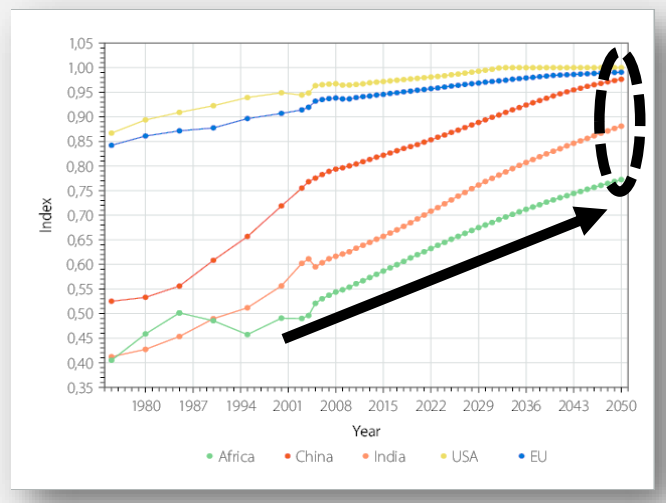
What is the macro-economic and socio-economic impact of HIV and Aids, especially in the least-developed countries (LDCs)? What does this mean for organisational practices and strategies? Prof André Roux of futures studies at the SU Business School tackled this topic as part of our programme for today’s #SummerSchool2023 sessions.
From an economic perspective, HIV and Aids create additional needs and wants simultaneously, depleting a society’s resources. Economic growth and development are compromised, skills shortages exacerbated and inflation elevated.
In LDCs (most countries in Sub-Saharan Africa), these challenges are aggravated. As this World Bank graph shows, human development in Africa continues to lag behind the rest of the world.
Navigating these challenges will require a well-considered, multi-faceted approach. Roux shared a few pointers:
* The brick-and-mortar economy is crucial.
* Industrialisation poses a threat to resource-based industries and economies, while fourth industrial revolution demands a unique skill set.
* Entrepreneurs drive wealth and job creation.
* There is no quick fix, which is why we require a mindset change.
* It’s important to celebrate the positives. This is especially relevant as we take on the mammoth task to #endAIDS.
#endAIDS2030 #HivAidsManagement #StellenboschUniversity
